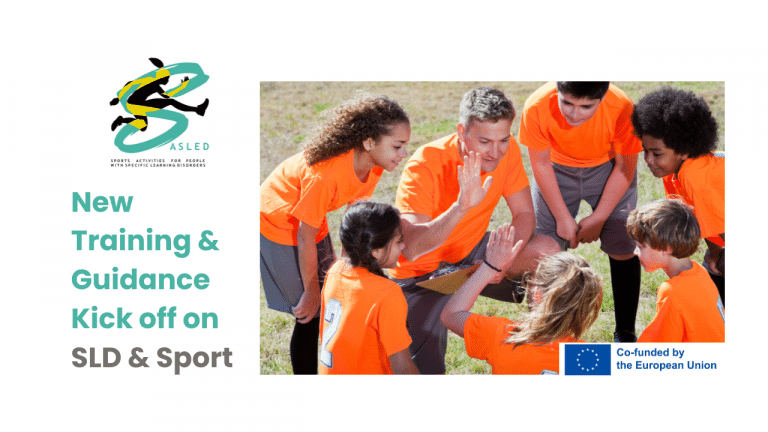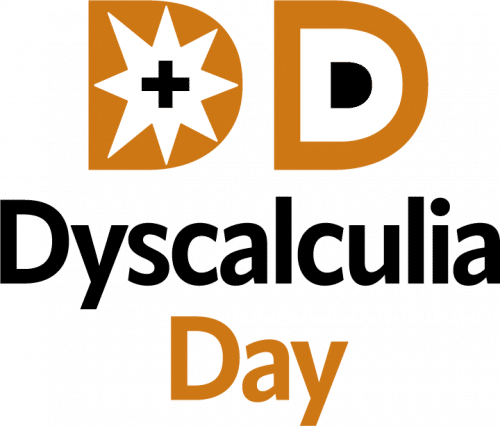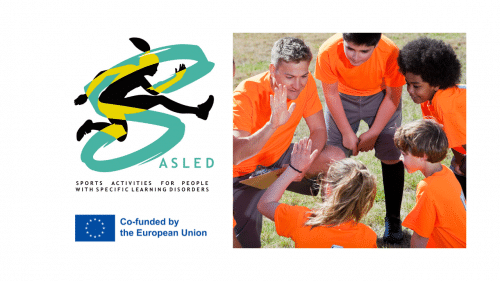A free online training course in the framework of the Erasmus+ project “Sports activities for people with specific learning difficulties”: 12 video-lessons, guidelines and handouts addressed to educators, teachers, trainers and sports volunteers to promote social inclusion and equal opportunities of people with SLDs through sport
There is now a new tool to promote social inclusion and equal opportunities for adolescents and young people with specific learning difficulties (SLD) through sport.
Within the framework of the Erasmus+ Sport project “SASLED” (“Sports activities for people with specific learning difficulties”) an e-learning platform has been developed to train and sensitise educators, teachers, instructors and sports volunteers on these neurodivergences, to make sports activities more accessible and meet the learning needs of people with dyslexia, dysgraphia, dyscalculia and dysorthographia.
The online course aims to highlight the importance of physical exercise in improving cognitive abilities, such as executive functions (attention, concentration, planning, working memory, self-control), in promoting self-esteem, contributing to individual fulfilment and thus to the development of social relationships. By training sports practitioners, the overall aim of the project is to increase the number of people with SLDs who participate in sport and to enable these children and young people to be immersed in an inclusive environment that respects their specific needs.
The online course and the annexed guidelines “SLD, sport and physical activity” represent the final phase of the European project, which is led by ASD Running Matera, joined by six other partners: Associazione Italiana Dyslexia and ASD Sport Club Basilicata (Italy), Asociata Bucuresti Pentru Copii Dislexici (Romania), Dyslexia Association of Ireland (Ireland), European Dyslexia Association (Belgium), and UCAM Universidad Católica de Murcia (Spain).
The training course, which is completely free, takes place on a dedicated e-learning platform: it is structured in 5 modules with 12 video lectures and in-depth downloadable materials dealing with various topics: from the understanding of SLDs, to the importance of physical activity in development, to strategies for social inclusion through sport and the presentation of case studies and personal experiences. In the coming months, the platform will be enriched with further content and videos produced by the project partners.
The training is asynchronous: each participant will be able to view the video lessons and study the materials on the platform without time constraints, according to their own needs.
The platform contents are available in the 4 project languages (English, Italian, Spanish and Romanian). The video lessons of the training course are in English but it is possible to activate subtitles in any language via the YouTube feature.
To take part in the training course, registration on the platform is required, via this link.
To participate in the training course, it is necessary to register on the platform via this link and complete the course by 31 December 2024. After filling in the registration form with their data, the user receives an email with a confirmation link, which allows access to the online course.
At the end of the lessons and after passing the evaluation questionnaires, a certificate of participation can be downloaded.
“With these two didactic tools (online course and guidelines), we will be able to train thousands of educators, teachers, instructors and sports volunteers all over Europe, who will become ‘sports operators trained on SLDs, thus able to put every child in the best conditions to successfully play sports, overcoming personal difficulties through greater knowledge on the subject and promoting greater well-being,’ said Emanuele Vizziello, PM of ASD Running Matera, the project leader. ‘Training trainers is in fact the best way to encourage the participation of boys and girls with SLDs in sports activities: this is the first project of its kind at European level, the result of a synergy between organisations dealing with specific learning difficulties, sport and training”.
Funded by the European Union. Views and opinions expressed are however those of the author(s) only and do not necessarily reflect those of the European Union or the European Education and Culture Executive Agency (EACEA). Neither the European Union nor EACEA can be held responsible for them.





